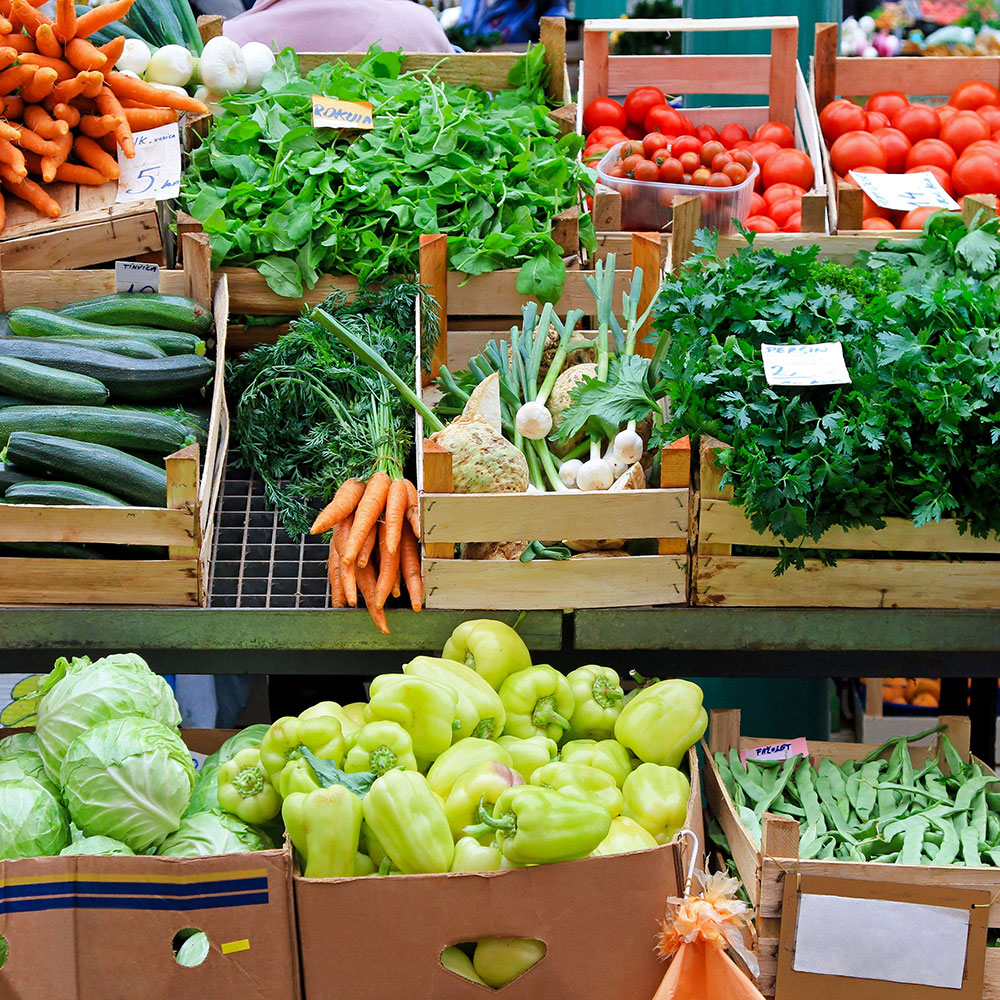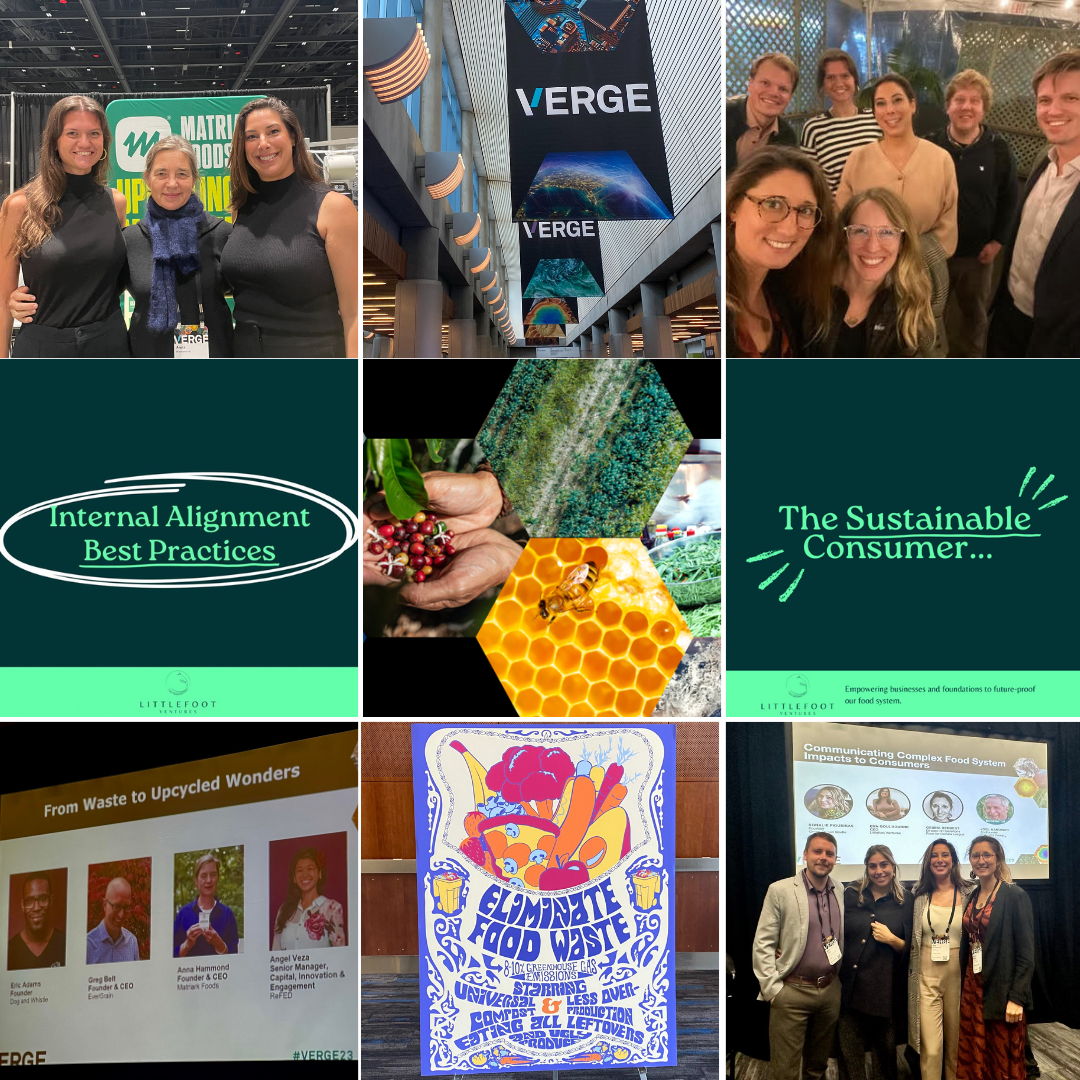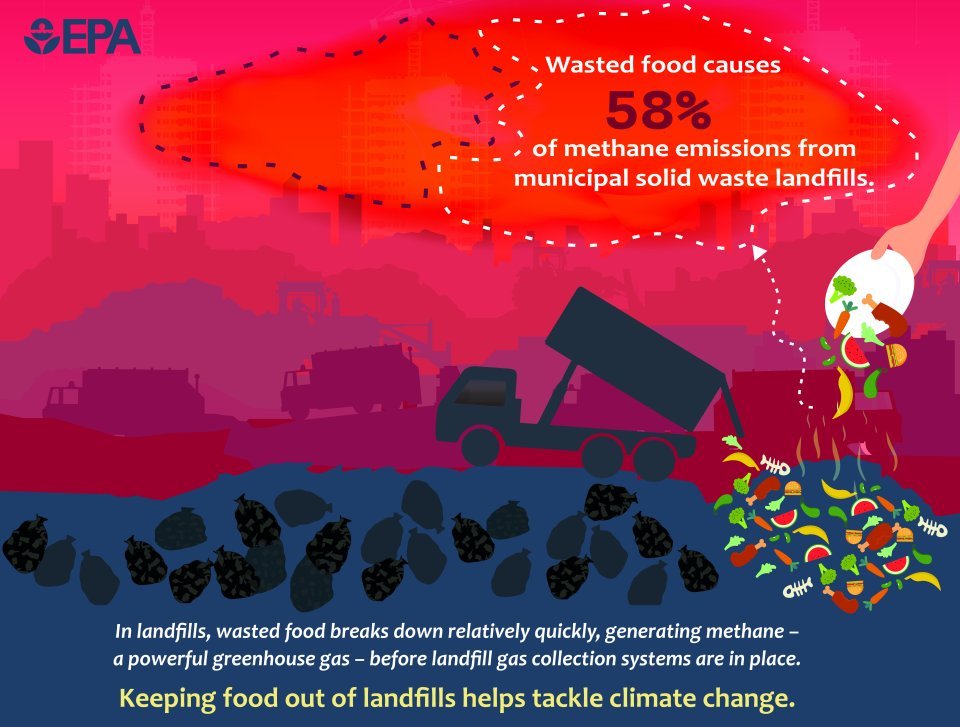Dear Colleagues,
Hello! I am Carsen Daniel, Project & Communications Manager and first full-time employee of Littlefoot! Based out of Austin, Texas I am a recent-ish graduate of the University of Mississippi where I studied and worked on food and agriculture policy in the Mississippi Delta.
I am deeply passionate about our food system and wanted to understand more about the drivers of wasted food which led me to Eva’s work in this space. As a follower of her work (and this newsletter!), I sent her a cold email to see if there were projects that needed extra support. I must have caught her at the right time because she got back to me immediately to start part time. Eight months later, I am working full-time in this wild world of food systems transformation. Moral of the story: be brave and always send that cold email!
In this role, I support Littlefoot’s communications strategy including Eva’s thought leadership work, client engagement, and will be leading the development of new knowledge products for Littlefoot in 2024.
Last month, Eva and I met in-person for the first time and spent several days together at Greenbiz VERGE in San Jose. I had the opportunity to participate in Eva’s workshop exploring the best practices food companies should use to communicate environmental and social impact to their consumers. This workshop and other incredibly inspiring panels at VERGE were fantastic reminders of why we do the work we do. Here are some of my personal takeaways from VERGE:
- The knowledge gap between how our food system affects climate remains large. The conference included many other carbon abating solutions like EVs and solar, but nevertheless, it highlighted the uphill struggle of the food system to become a prominent part of the mainstream climate movement.
- The pitfalls of “climate-smart” diabetes: “Centering Nutrition Density Over Calorie Yield” was one of my favorite sessions, hosted by Mary Purdy with Camila Recalde, Jessica Hulse Dillon, and David LeZaks. It highlighted the critical importance of emphasizing nutrients over calories in efforts to ground sustainability efforts not just “in food to keep us alive, rather, food to keep us healthy.”
- In person collaboration ignites more creative solutions. It was inspiring to see people from across the globe come together to learn, discuss, and educate on the effects of our food systems on climate change. The solutions people are coming up with are wild and creative, and you can’t help but start thinking creatively and wildly as well.
Beyond the conference circuit, there are incredible things fanning the flame for food systems transformation that Eva and I are excited to see:
- The EPA recently released two new reports that validate the urgent need for improved waste management strategies to mitigate the environmental impact of food waste. According to the Quantifying Emissions from Landfilled Food Waste report, overall GHG emissions from landfills are decreasing but emissions from food are increasing. Comprising a quarter of all municipal landfill volume, food waste contributes to more than double the GHG emissions, or 58%. As a leading voice in the upcycling sector, Eva was thrilled to see Upcycling prominently featured as a recovery solution in the new EPA’s Wasted Food Scale featured in the Environmental Impacts of U.S. Food Waste Management Pathways report.
- Eva, along with Dr. Lisa Johnson and Alison Grantham, PhD, was published in this month’s issue of The World of Food Ingredients. On page 62 of the publication, read about the vast opportunity of food loss and waste, why companies and organizations should care, and how the new food economy is recovering nutritious ingredients for consumers through research, innovation, and upcycling.
- Finally, Littlefoot turns SIX next month! Follow along with us on Linkedin and Instagram to celebrate our birthday.
We hope you all have a wonderful holiday break surrounded by loved ones and delicious food. Don’t forget these helpful tips to avoid wasting food this Thanksgiving.
It’s great to meet you and I look forward to working with you.
Sincerely,
Carsen Daniel
Contact me via our website.
Did a friend forward you this email? Subscribe here.
What I’m Reading
Sustainability:
How chefs are using their influence to advocate for climate action – Grist
Chefs leverage their influence to advocate for climate action, showcasing the culinary industry’s potential impact on sustainability and offering inspiring examples of how influential figures can drive positive change in the fight against climate change.
The Great Underappreciated Driver of Climate Change – The Atlantic
An exploration of the massive food waste problem in American households sheds light on the urgency of behavior change, emphasizing the need for concerted efforts to create a more sustainable and responsible approach to food consumption and disposal.
Consumers Will Not Save the World: Why Now Is the Time for a Reset – Globescan
Globescan’s Healthy and Sustainable Living Report 2023 delves into consumer perceptions and behaviors, offering a comprehensive roadmap for tailoring strategies to evolving preferences in health and sustainability, providing valuable insights for businesses navigating this dynamic landscape.
The Illusion of Absolute Sustainability – The Future Market, Substack
The Future Market challenges the concept of absolute sustainability, urging a reevaluation of expectations and a pragmatic focus on impactful solutions, providing a thought-provoking perspective on the complexities of achieving true sustainability.
Global health and environmental costs of food industry are $10tn a year – UN – The Guardian
The UN FAO reveals the staggering $10 trillion annual cost of the food industry’s impact on global health and the environment, emphasizing the urgent need for systemic changes to create a more sustainable and equitable food system.
Policy:
From Field to Bin: The Environmental Impacts of U.S. Food Waste Management Pathways – EPA
EPA delves into the environmental impacts of various food waste management pathways, offering a comprehensive analysis that emphasizes the importance of optimizing waste disposal methods for a more sustainable and eco-friendly food system.
Quantifying Methane Emissions from Landfilled Food Waste – EPA
The EPA’s research quantifies methane emissions from landfilled food waste, underscoring the urgent need for improved waste management strategies to mitigate the environmental impact of food disposal practices.
Household Food Security in the United States in 2022 – USDA
The recently released annual report by the U.S. Department of Agriculture reveals a concerning deterioration in the state of household food security in the U.S. In 2022, 12.8 percent of households—17 million in total—reported experiencing food insecurity, surpassing both 2021 (10.2 percent or 13.5 million households) and 2020 (10.5 percent or 13.8 million households).
USDA: More than $32 million in grant awards to strengthen local and regional food systems – The Packer
The USDA allocates over $32 million in grants to fortify local and regional food systems, demonstrating a substantial commitment to fostering sustainable agriculture and bolstering the resilience of community-based food networks.
How Did Democrats Lose Control of State Agriculture Policy? – New York Times
Democratic agriculture commissioners in Kentucky spearhead sustainable practices, signaling a transformative shift in agricultural policies and practices, showcasing the pivotal role politics plays in shaping environmentally conscious farming.
Health/Nutrition:
NGA Foundation offers produce prescription resource – The Packer
The NGA Foundation introduces a comprehensive resource for produce prescriptions, offering a detailed guide to bridge the gap between healthcare and sustainable agriculture, presenting a multifaceted approach to community well-being.
What Do Dietitians Really Think about Sustainability? Food + Planet and Today’s Dietitian – PR Newswire
In a survey, nutrition experts unveil dietitians’ perspectives on the intricate relationship between food, health, and sustainability, shedding light on the nuanced considerations shaping the future of nutrition practices.
Workforce:
Climate Action at Work: A Guide for Employee Advocates – Climate Voice
Climate Voice provides a detailed guide for employees advocating for climate action within their organizations, offering practical insights and strategies to foster corporate responsibility in sustainable practices, empowering individuals to drive change.
A playbook for change: How we’re working to scale sustainability across our marketing – Google & Project Drawdown
This playbook from Google and Project Drawdown offers valuable insights and strategies for integrating sustainability into marketing practices, providing a guide for businesses aiming to align their brand messaging with environmental consciousness.
The ‘climate quitters’ ditching corporate roles – BBC
Professionals are leaving corporate roles to address climate change, highlighting a growing trend of individuals prioritizing environmental impact over traditional career paths, showcasing a paradigm shift in career choices driven by climate consciousness.


